Joinings
Compound Words in Old English Literature
Jonathan Davis-Secord
University of Toronto Press
Toronto Buffalo London
To SCDS, both of you
University of Toronto Press 2016
Toronto Buffalo London
www.utppublishing.com
Printed in Canada
ISBN 978-1-4426-3739-9
 Printed on acid-free, 100% post-consumer recycled paper with vegetable-based inks.
Printed on acid-free, 100% post-consumer recycled paper with vegetable-based inks.
Library and Archives Canada Cataloguing in Publication
Davis-Secord, Jonathan, author
Joinings : compound words in Old English literature / Jonathan Davis-Secord.
(Toronto Anglo-Saxon series)
Includes bibliographical references and index.
ISBN 978-1-4426-3739-9 (bound)
1. English language Old English, ca. 4501100 Compound words. 2. English literature Old English, ca. 4501100 History and criticism. 3. English language Old English, ca. 4501100 Style. 4. English language Old English, ca. 4501100 Grammar. 5. Language and culture England To 1500. I. Title. II. Series: Toronto Anglo-Saxon series
PR173.D385 2016 829.09 C2015-908296-X
This book was published with the generous assistance of the Book Subvention Award from the Medieval Academy of America.
University of Toronto Press acknowledges the financial assistance to its publishing program of the Canada Council for the Arts and the Ontario Arts Council, an agency of the Government of Ontario.

Acknowledgments
I have benefitted tremendously from the training, advice, and support of many people and institutions in writing this book. This network in fact took form before I even imagined this book, beginning with the excellent instruction and inspiration provided by my professors at Brandeis University, especially Joan Maling, who first taught me linguistics and Old English, and Mary Baine Campbell, who first taught me how to write and how to be a medievalist. I subsequently benefitted from the friendship and encouragement of the amazing community of faculty, graduate students, and their spouses at the University of Notre Dame, especially Scott Smith and Rene Trilling, both of whom generously read and commented on parts of this book, and Calvin Bower and Brian Krostenko, both of whom gave generously of their time to train me in elements fundamental to but often hidden in this book. I continue to benefit greatly from my current colleagues at the University of New Mexico, especially Helen Damico, Timothy Graham, and Anita Obermeier. At the University of Toronto Press, I frequently tested the patience of and relied on the expertise of Suzanne Rancourt and Barb Porter. Institutionally, I have received important support from Notre Dames Medieval Institute, the Dolores Zohrab Liebmann Fund, the English Department at the University of New Mexico, the British Library, Oxfords Bodleian Library, and the Medieval Academy of America. Without this network, this book would not be half of what it is now, although all mistakes remain my own.
Several people deserve special thanks for their enduring and uplifting support. My family on all sides has provided inspiration and motivation throughout and in the most difficult moments, especially my parents-in-law, Terry and Catherine Davis, and my parents, William and Linda Secord, whose unflagging encouragement allowed me to begin this journey in the first place. My dissertation co-directors, Michael Lapidge and Katherine OBrien OKeeffe, were instrumental not only in teaching and advising me but also in further kindling my love for Anglo-Saxon studies. They guided me expertly, and I am particularly grateful for their support over the past several years as I transitioned onto the tenure track. Without these people, this book would not exist.
Finally, I am more grateful than I can express for the love and support of my wife, Sarah, and my daughter, Sage. You enrich my life beyond measure and make me a better person. Without you, this book would mean nothing.
Abbreviations
ASE Anglo-Saxon England
ASPR Anglo-Saxon Poetic Records
BT Joseph Bosworth, An Anglo-Saxon Dictionary, ed. and enlarged by T. Northcote Toller (1898; Oxford: Oxford University Press, 1973)
CCSL Corpus Christianorum, Series Latina
CH I Peter Clemoes, ed., lfrics Catholic Homilies: The First Series, Text, EETS s.s. 17 (Oxford: Oxford University Press, 1997)
CH II Malcolm Godden, ed. lfrics Catholic Homilies: The Second Series, Text, EETS s.s. 5 (London: Oxford University Press, 1979)
CSASE Cambridge Studies in Anglo-Saxon England
DOE Dictionary of Old English: A to G, ed. Angus Cameron, Ashley Crandell Amos, and Antonette diPaolo Healey (Toronto: University of Toronto Press, 2007)
DOEC Dictionary of Old English Corpus on the World Wide Web, compiled by Antonette diPaolo Healey with John Price Wilkin and Xin Xiang (Toronto: Dictionary of Old English Project, 2009)
EETS Early English Text Society
JEGPJournal of English and Germanic Philology
Lewis and Short Charleton T. Lewis and Charles Short, A Latin Dictionary (1879; Oxford: Clarendon Press, 1989)
LS lfric, Lives of Saints
NMNeuphilologische Mitteilungen
JOININGS
Connecting Grammar, Style, and Culture
lfric prefaces his treatise on grammar and rhetoric with the following explanation of its motivation: stfcrft is seo cg, e ra boca andgit unlic [grammar is the key that unlocks the meaning of those books]. levels of language and meaning, from basic grammar through rhetorical style to forms of knowledge within a Christian cultural framework. It is this subtle but fundamental joining of grammar, style, and culture that concerns this book, which investigates the relationships between minute linguistic details and their larger contexts of style and culture.
Compound words specifically effect this intersection of grammar, style, and culture most completely in Old English. As the joining of two words, each compound involves fundamental processes of grammar and semantics, while simultaneously forming an essential stylistic feature of Old English literature that produces meanings in culturally specific ways. No other Old English linguistic feature bridges the supposed divides between basic word formation, rhetorical traditions, and cultural practices. Joinings: Compound Words in Old English Literature focuses therefore on the different uses of compound words in a variety of texts from several different moments in Old English literary history to uncover several important joinings: word with word, grammar with rhetoric, and style with culture. Informed by this paradigm of joining, the following chapters examine the fundamental role of compound words in Old English literature and thereby present a new understanding of the vernacular literature of the Anglo-Saxons and their theories of language and literature.
This paradigm of joining, unfortunately, never overtly appears in any Anglo-Saxon text. Indeed, no Anglo-Saxon treatise on the vernacular survives, and any account of a vernacular theory of language and literature ultimately requires reconstruction from indirect sources. Comments on vulgar poets or poetry suggest rare snippets of insight but generally fail to fulfil their promises, as with Bedes description of rhythmic verse:

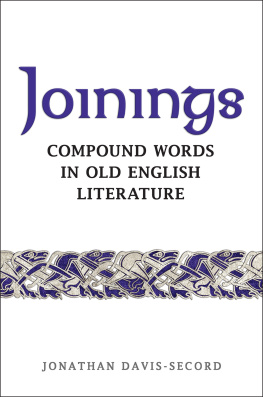

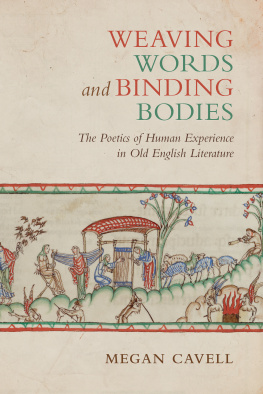
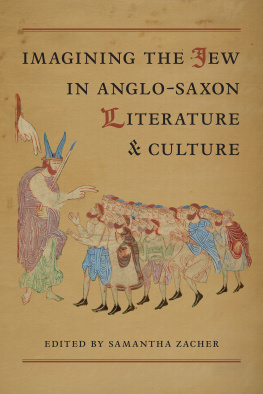
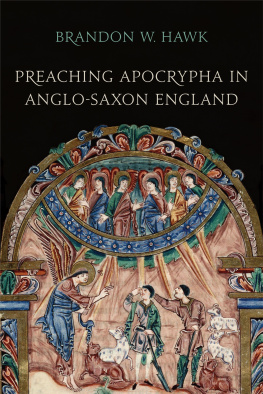
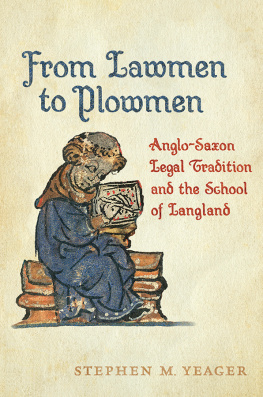
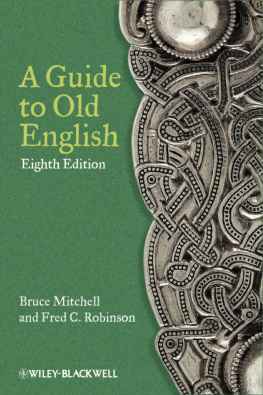
 Printed on acid-free, 100% post-consumer recycled paper with vegetable-based inks.
Printed on acid-free, 100% post-consumer recycled paper with vegetable-based inks.